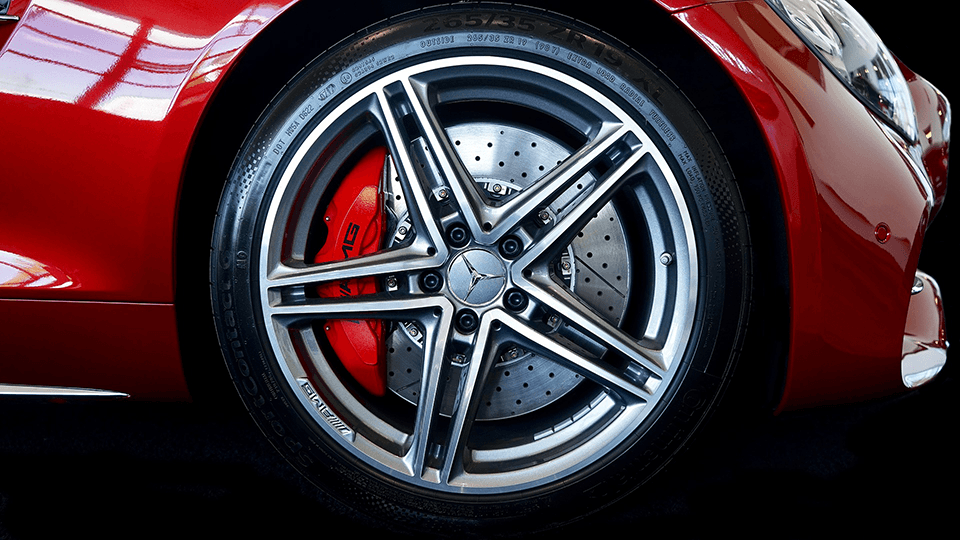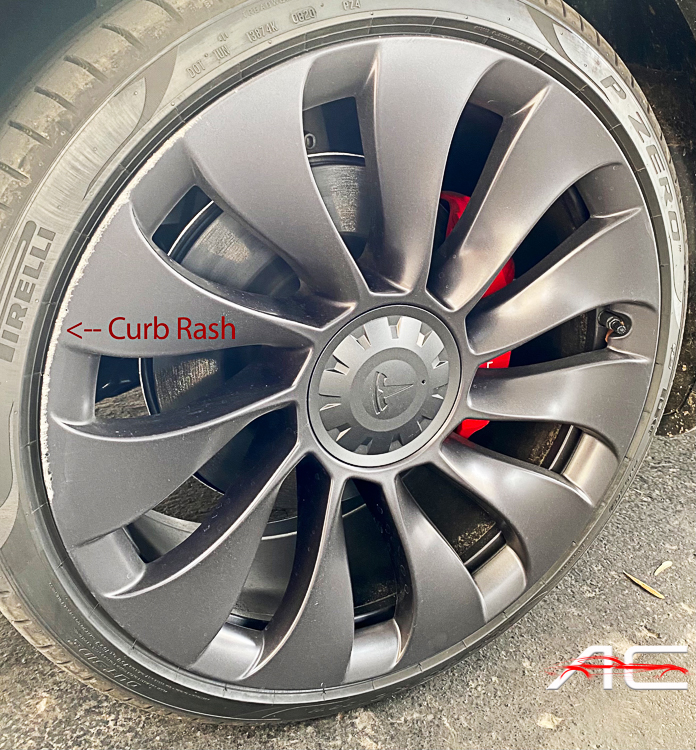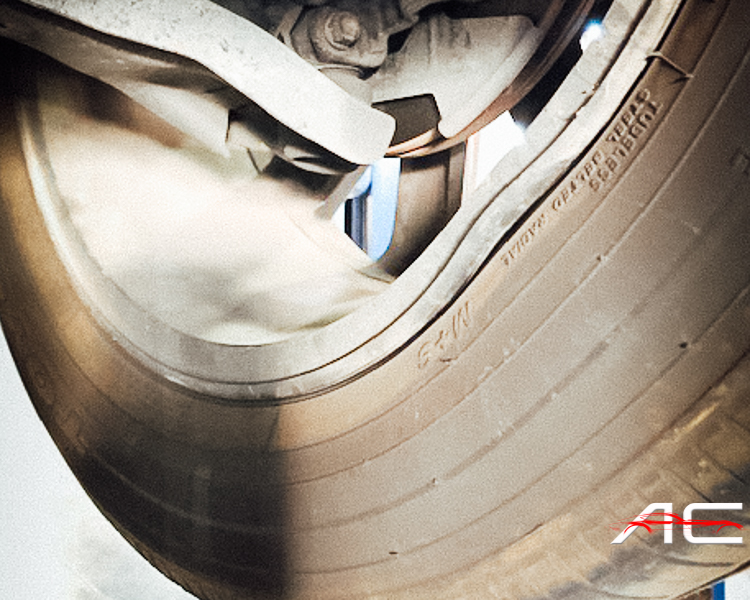Learn About 3 Common Types of Wheel Damage

Root causes and mitigation measures
ON THIS PAGE:
Overview
Dealing with wheel damage is an unfortunate reality every driver may face on the road in a lifetime. These unforeseen accidents can happen when you least expect them, no matter how experienced a driver you are. Perhaps while making a tight turn, you suddenly hear a horrible scraping sound from your wheel striking the curb. Or, while cruising along at 50 MPH when all of a sudden, you strike a pothole with full force. Maybe you run over a ladder on the highway that some contractor left behind rushing on to the next job.
Regardless of the cause, this article will help you understand the three common types of wheel damage and mitigation measures to ensure your and your loved one's safety on the road.
$99 Wheel Repairs
We use cutting-edge technology and effective techniques to restore your wheels. Satisfaction Guaranteed.
LEARN MOREThree Common Types of Wheel Damage
While they are frustrating and annoying, not all-wheel damage types equal their severity and cost to repair. Some issues with your wheels can present a grave safety concern and need to be quickly addressed to continue with your vehicle's safe operation. The following are the three common wheel damages and root causes seen by restoration and repair specialists:
1. Curb Rash

Curb rash occurs when a vehicle's driver accidentally scrapes their wheel on a raised concrete curb while making a tight turn, attempting to parallel park, or driving on a flat tire. As the wheel's metal is "rashed," the protective coating is compromised, resulting in scuffing, scrapes, or scratches to the bare metal.
The wheel's bare alloy metal exposure to the elements can also lead to rust. Rust is invasive, and it can eat away at your wheels mercilessly, and once that protective coating is scraped away, rust can happen very quickly.
Fortunately, curb rash wheel damage is generally considered cosmetic. Therefore, a professional technician with the right knowledge, skill, and equipment can restore your wheels to their original condition. While cosmetic wheel damage may not be considered an urgent matter, prompt repair is highly recommended to avoid wheel decay and maintain safety.
2. Bent Wheels

In most cases, a bent wheel happens when your tire impacts potholes, curbs, road hazards, or after an accident. Since your tires are made of rubber and filled with air, they often take the brunt of the impact. However, if the impact is so severe that it displaces the rubber and air, your wheel or rim will take the hit's force causing structural damage such as bends to the inner and outer lip. This condition is especially common on low profile tires where there is less cushioning available from the tire due to the shorter sidewall of a low profile tire.
A bent wheel can lead to dangerous situations. For instance, if your wheel becomes bent, the seal's integrity could fail and cause your tire to leak air slowly and go flat. Your tire can also suddenly lose air, and you could be forced to deal with a sudden blowout. If this happens, you are put in grave danger from a rollover or spin out. Not to mention the danger of being stranded on the highway or other busy road.
Importantly, once your wheel is bent, it's no longer perfectly round, resulting in your tire's uneven contact with the road's surface. This unevenness causes your vehicle to vibrate or shake as speed increases. Vibration can be annoying or distracting, but it can also lead to serious damage to your vehicle's wheel bearings, steering, and suspension systems. Therefore, driving on bent wheels can be extremely dangerous.
Car owners should have wheel damage inspected immediately after severe impact by a professional to determine the extent of damage sustained and appropriate mitigation measures.
In most cases, a technician who follows safety protocols may consider a bent wheel irreparable and recommend the owner purchase a new wheel. It is also worth noting that Original Equipment Manufacturers (OEMs) such as Toyota, Honda, General Motors, Chrysler, among others, generally disapprove of refurbishing wheels that require structural wheel repair due to safety reasons.
3. Cracked Wheels
A cracked wheel can happen for a few different reasons. The most common cause of cracked rims is from impact with stationary objects or debris. Like a bent wheel, if the tire cannot absorb the impact, your rim will take the force and form a crack. Although wheels are strong, they are primarily designed to be lightweight, and the alloys used in some wheels are susceptible to cracking or fracturing. Occasionally, a manufacturer's wheel may form a defect and crack without impact. However, this is exceedingly rare.
Getting Your Wheels Fixed
The urgency of repairing wheel damage depends on the classification of damage, cosmetic or structural.
Cosmetic damage is superficial damage to the wheel or rim, like curb rash, scuffs, scrapes, or scratches, that may require repair processes limited to sanding and refinishing. Cosmetic wheel damage is generally repairable.
Structural damage is any damage to a wheel or rim that compromises the underlying structure, such as bends and cracks. The repair processes may include heating, straightening, welding, material removal, and reshaping the wheel. In most cases, wheels with structural damage are not repairable.
For these reasons, it is always good practice to have wheel damage immediately inspected by a professional to determine the extent of damage sustained and appropriate mitigation measures.
Without specific knowledge or training, repairing a damaged wheel is not an easy task for the typical DIY mechanic. Not only do you need to have the skills necessary to repair the metal, which is in of itself a fine art, but you'll also need to have a strong working knowledge of removing a tire from a rim and replacing it. This process requires specialized tools and knowledge to ensure that it is completed correctly and that the tire will not fail or blowout.
It's best to leave this type of work to the professionals. The team at Auto Cosmetics offers mobile cosmetic wheel repairs by qualified and experienced technicians. If you've got cosmetic wheel damage, schedule a wheel repair, and our technician will come to you to make the necessary repairs and get you back on the road quickly and safely.
